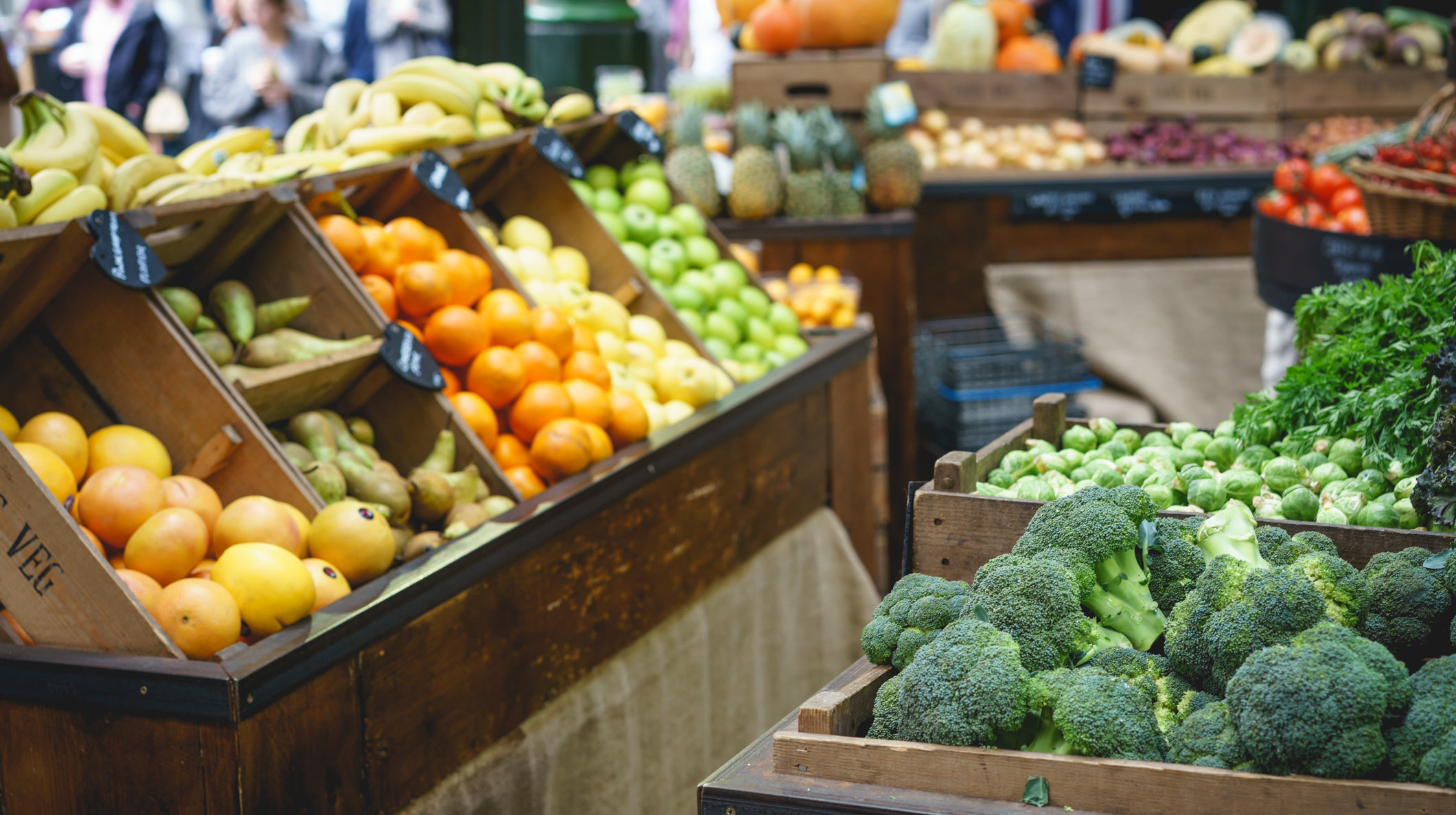No One Knows What "Local" Food Means
Local food sounds great. Yes, wouldn't we prefer to eat foods grown or produced locally to reduce fuel and transport costs, to keep money in our area's economy, and to get the freshest possible product? Local foods topped the list of consumers' priorities when it comes to "causes"—GMOs, antibiotic use in animals, etc.—with Nielsen researchers finding 46% of grocery shoppers say they're aware of the importance of buying local. But when it comes to defining what local means, customers have, and I'm paraphrasing here, not a clue.
Another Nielsen survey, brought to our attention by Grocery Dive, surveyed 20,000 consumers and found that perceptions of local food are all over the place. Some respondents think local food should come from within the state, while others consider certain foods local if they're produced within the U.S. It can vary between types of food as well; your definition of local cheese might differ from your definition of local kale.
Most respondents said eggs, baked goods, and produce should come from the same city or town as the store in order to be labeled local. But they're a bit more lenient when it comes to dairy, deli items, and meat, which most respondents said were local if they came from within the state. Frozen goods, seafood, and packaged foods had the widest definition, with most consumers saying they're local if they came from within the U.S.
Such disparities clearly could create confusion, especially because there are no regulatory requirements—as there are for organic foods—to label something local. Usually, it's up to the store to label foods local via a sign or sticker; while on restaurant menus, pretty much anything goes.
Because "local" is an important criterion for shoppers, as well as a proposed solution to reducing carbon emissions generated by our food system, some attempt at a definition would be a welcome change. Attempts to pin down guidelines, though, prove just how thorny the local discussion is. Assuming that foods produced in-state sound logically as though they'd fit the definition of local, then what of foods produced near an store, but across state lines? Or, if we set the definition based on mileage, the question is still complicated. Some area might not have much dairy production; does that mean cheese made 300 miles away, but still in-state, isn't local? And there's even a broader question of whether "food miles" matter when it comes to carbon generation.
Doing away with the term altogether seems unfortunate, given the Nielsen survey proves how much consumers would like to buy food made near them. So, Takeout readers, what's your definition? Or is local inherently a flawed term, in which case, what would you prefer to see as the alternative?
